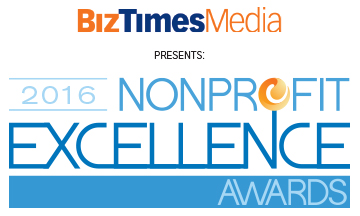Expectant Parents
There are many different types of prenatal tests for Down syndrome. In order to best understand what the results mean for you and your pregnancy, it is important to understand which type of test that you received:
The "triple screen," "quadruple screen," “first trimester combined screen,” “integrated screen,” and “contingency screen” are all different types of prenatal screening tests that involve, to varying degrees, bloodwork and ultrasound findings. These screening tests provide you a risk assessment, not a diagnosis, and the results should be communicated as such. In other words, you should not be told that your child is “positive” or “negative” for Down syndrome. Instead, the results indicate the probability (or degree of chance) that your child will have Down syndrome. For example, you might be told that your child has a 1 in 300 chance of having Down syndrome. It is important to realize that different people can interpret probabilities in very different ways.
Current Down syndrome prenatal screening results are anywhere from 65 to 95 percent accurate depending on the exact test.
A new noninvasive prenatal test involving cell-free DNA is now commercially available. This also is a blood test that can be performed as early as 10 weeks gestation. These results are delivered as a “positive” or “negative,” although it is important to understand that these tests are 99% accurate. This means that expectant mothers who receive a “positive” result, have about a 1% chance of not having a child with Down syndrome; expectant mothers who receive a “negative” result, have about a 1% chance of actually having a child with Down syndrome. If expectant mothers wish to confirm these results, physicians recommend that expectant mothers proceed with a CVS or amniocentesis.
Determining with virtual certainty that your child has Down syndrome requires an invasive test, where a needle is inserted into the pregnant abdomen. Usually administered after the 15th week of pregnancy, an “amniocentesis” analyzes a uterine fluid sample, which contains fetal cells. The chromosomes of these cells can be tested to determine whether Down syndrome is present. Administered usually 10 to 14 weeks into the pregnancy, “chorionic villus sampling” or “CVS” analyzes fetal cells like in an amniocentesis, but using placental not uterine fluid. Both these tests carry a small risk of miscarriage.
If you have received prenatal tests that suggest or confirm Down syndrome, remember that DSAW is here for you with accurate, up-to-date information and the opportunity to speak with a parent mentor through our Parents First Call Program. See below for details.
Parents First Call Program & DSAW Support Parents
For expectant parents of children with Down syndrome, any opportunity to speak with other parents who have experienced what you are experiencing can be invaluable. DSAW's Support Parent network is a statewide group of trained parent mentors available 24/7 to listen, share, answer questions, provide valuable information. If you would like to request an Expectant Parent Pack and/or speak with a DSAW Support Parent who also received a prenatal diagnosis, please fill out our Parents First Call Contact form or email firstcall@dsaw.org. Our trained volunteers are especially trained in providing unbiased support and information for prenatal, pre-decision parents.
Prenatal Diagnosis Support Group
DSAW hosts a completely non-judgmental support group for women who have recently received a prenatal Down Syndrome diagnosis and wish to seek personal support. The group is for women in various stages of their pregnancy and decision-making journey. We welcome everyone, regardless of any decisions made, to attend our judgment-free group. Join us as we gather to provide support and share our experiences. Click here to learn more about this group and to sign up.
National Booklet "Understanding a Down Syndrome Diagnosis"
The 2011 edition of “Understanding a Down Syndrome Diagnosis” contains the latest medical and developmental information about people with Down syndrome as well as local and national resources, pregnancy options and helpful visuals and graphics. This booklet has been reviewed by all the major medical organizations involved in expectant mothers’ health. To request a copy of this booklet, fill out our new/expectant parent form, call 1-866-327-DSAW (3729), or e-mail firstcall@dsaw.org. You may also download a digital copy here.
Online Resources
Check out the digital version of the DSAW Parent's First Call Magazine. A hard-copy of this magazine is included with all Expectant Parent Packs and New Parent Welcome Baskets.
We highly recommend that you check out our national partners, including the National Down Syndrome Congress (NDSC), and the National Down Syndrome Society (NDSS) for a wealth of information for new parents.
The National Down Syndrome Society's "A Promising Future Together" guide is written specifically for new and expectant parents.
Brighter Tomorrows provides families with balanced information about receiving a prenatal or postnatal diagnosis of Down syndrome.
A free, downloadable book for expectant parents who have made the decision to continue their pregnancy, Diagnosis to Delivery: A Pregnant Mother's Guide to Down Syndrome, is available at www.downsyndromepregnancy.org. It includes strategies for coping with a Down syndrome diagnosis, medical guidelines for the first year, and support resources.
Check out our New Parent Resources, Resources by Subject, and Resources by County pages for more information.
Finding Your Way Navigation Guide: This resource has been reviewed by content experts, information and referral specialists, and families. The guide includes brief descriptions of programs, services, systems of support, and contact information for these resources.
Recommended Books
Down Syndrome Parenting 101 by Natalie Hale
Gifts: Mothers Reflect on How Children with Down Syndrome Enrich Their Lives, edited by Kathryn Lynard Soper
Common Threads: Celebrating Life with Down Syndrome by Cynthia Kidder and Brian Skotko
The Parent's Guide to Down Syndrome: Advice, Information, Inspiration, and Support for Raising Your Child from Diagnosis through Adulthood by Jennifer Jacob and Mardra Sikora
What I Want You To Know: Messages of Hope and Joy from your Baby by RA Hudson
Diagnosis to Delivery: A Pregnant Mother's Guide to Down Syndrome by Nancy McCrea Iannone and Stephanie Hall Meredith
Adoption
We understand that not all birth families feel they are able to meet the needs of children with Down syndrome. The National Down Syndrome Adoption Network provides information to birth families who may be seeking alternatives to parenting as they prepare for the arrival of their child. The network currently has a registry of families who are approved to adopt a baby with Down syndrome. You may text or call them at 513-709-1751.
Health Care Professionals
As a new parent of a child with Down syndrome, take comfort in knowing that Wisconsin is a great place to live. Here are just a few recommended health care resources in Wisconsin:
- Children's Hospital of Wisconsin Down Syndrome Clinic (Milwaukee)
- Waisman Center Down Syndrome Clinic (Madison)
- Gundersen Down Syndrome Clinic (La Crosse)
Thank you to the Massachusetts Down Syndrome Congress for their help with this page and DSAW's PFC Program.






